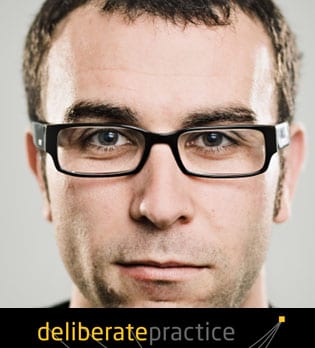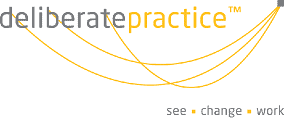The Workplace as an Experience, digital HR, AI and machine learning are gaining momentum in businesses looking for improved efficiencies and performance. They are not a panacea and require strong foundations including systems, processes and business partnerships to fully realise their potential. But will these emerging practices reshape and reposition HR and create new pathways to success for leading organisations? Our review of these practices and technologies may help you decide if this is the future for your HR organisation, and how you might go about embracing them.
The Workplace as an Experience
Employee Experience looks at an employee’s total experience at work. It incorporates engagement, culture, performance management, technology and experiences with it, and new ways of creating emotional connections with employees in the workplace. There are new roles emerging, including Chief Employee Experience Officer, which expands HR’s responsibilities to looking more deeply into workplace environments, internal communications, employee events, celebrations and recognitions.
Many may argue that HR has always had responsibility for these areas, but advocates of Workplace as an Experience (Airbnb, IBM) utilise a truly bottom up approach, using data and insight, to learn from employees what it will take for them to deliver for their business. IBM in particular uses employees to co-design employee experiences such as on-boarding, policy development, L&D and performance management that has resulted in employees feeling they are active participants in IBM’s transformation.
Australian based organisations that have adopted this job title include MYOB, Domain Group, Telstra, Allianz, Bankwest and Adobe.
Libby Sartain & Mark Schumann who helped create the Southwest Airlines and Yahoo! brands, in Brand from the Inside, wrote about creating an emotional connection with employees on the inside of your business so that they, in turn, deliver to customers on the outside. We believe the concept of Workplace as an Experience is an evolution of what marketing, communications and HR have been practicing (although not always aligned) for some time now. HR should champion the initiative, but it must be seen as a strategic driver of business performance and owned by the business.
Digital HR
HR analytics has been a focus for several years, however, the ability to link HR data to business intelligence is moving HR to a more evidence based model. The next frontier is predictive analytics where companies are using data to predict future outcomes or behaviour using their data.
IBM have found that employee engagement explains two-thirds of their client experience scores. If they can improve client satisfaction by five points on an account, they see an extra 20 percent in revenue on average.
L&D is also changing using more than just role based competency requirements. Using Watson Analytics, IBM are able to infer people’s expertise from their digital footprint inside the company and this is compared to where employees should be in their job family. The system learns from employee’s browsing and then creates an individual learning program.
Using data to provide business insights isn’t new, but AI and machine learning could open up a whole new level of insights. It isn’t going to happen overnight, but making the first step and linking HR data to business outcomes takes commitment and investment.
We see many organisations grappling with their HR data and not fully utilising HR analytics. Hence getting the fundamentals in place in order to strive towards the utilisation of more advanced techniques is a prerequisite. Using HR analytics and predictive analytics requires HR professionals to ask the right questions and interpret the data. So building the right capability in your HR functions is key.
AI in Recruitment
We see many Talent Acquisition functions trying to balance finding top talent, reducing time to hire and improving efficiency. Increasingly recruitment practices are being disrupted by AI-powered assistants that claim to reduce time to hire and increase the number of candidates who complete recruitment processes. Chatbots can assist to personalise the recruitment application process. Some of the interesting AI tools that we have reviewed include:
- Olivia is the AI assistant that focuses on candidate capture, screening, scheduling, and candidate communication & engagement
- Mya automates the process from resume to hire allowing employers to cultivate and engage the best candidates
- Textio uses augmented writing techniques, enables organisations to write more effective job adverts and bias free job descriptions
- ServiceNow are predicting that by 2020, that up to 75% of employees will access chatbots to resolve frequently asked HR questions and access HR solutions anywhere and anytime
- PredictiveHire use a combination of organisational data, KPIs and performance data and apply AI technologies to identify quality candidates who perform in unique business environments, leading to increased performance and reduced turnover.
What Next?
Most HR professionals we talk to find the struggle of meeting the demands of today can impede their ability to build a strategy for the future. We all know that the pace of digital disruption will only increase, so here are a few practical suggestions about what you should be doing right now:
- Get familiar with digital. Learn from a millennial. Get a digital mentor.
- Don’t just delegate AI and digital to someone in your team. Create a cross functional team across HR, Marketing, IT to start imagining the future. Get involved, and commit time in your diary to it, just like other strategic priorities.
- Your workforce will change so developing a strategic workforce plan makes more sense today than ever.
deliberatepractice is really excited about HR’s evolving role and how we can partner our clients to assist them to capitalise on the future opportunities these emerging practices and technologies will present. Whether assessing candidate’s digital capability experience in our HR Recruitment practice or facilitating Strategic Workforce Planning and Analytics training by deliberatedge, we see it as an incredible time to be in HR!
Bruce McCowan is a Director of deliberatepractice and supports organisations to achieve business objectives through their people. With experience as an HR Director in a range of industry sectors, Bruce provides unique insights into business and HR strategy to improve organisational performance.



